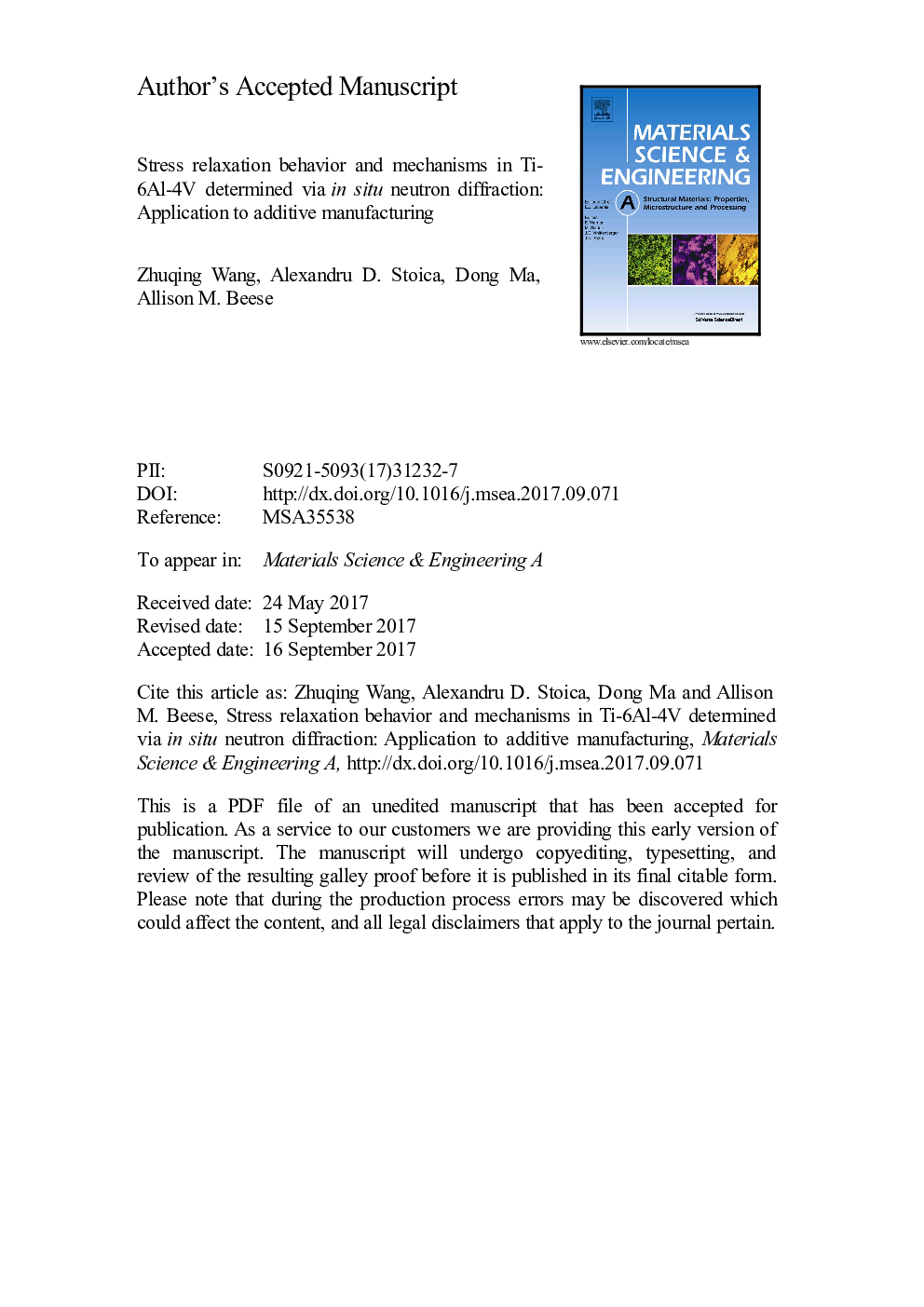| Article ID | Journal | Published Year | Pages | File Type |
|---|---|---|---|---|
| 5455268 | Materials Science and Engineering: A | 2017 | 30 Pages |
Abstract
The complex thermal histories present during additive manufacturing (AM) of metals result in the generation of residual stresses, which may result in distortion and early failure of the fabricated component. The amount of residual stress built up or relieved during deposition depends on the stress relaxation behavior of the deposited material as well as the substrate onto which the component is built, over the typical timescale for depositing a few layers in AM (seconds to minutes), which corresponds to the timescale over which the material is subjected to both stress and elevated temperature. This work presents a method for investigating stress relaxation behavior and mechanisms in conventionally processed and additively manufactured Ti-6Al-4V (CP Ti-6Al-4V and AM Ti-6Al-4V) through compression tests at 600 °C and 700 °C with in situ neutron diffraction. The results show that with an applied plastic deformation, 60-80% of the initial stress in Ti-6Al-4V was relieved in ten minutes and the stress stabilized at a negligibly low level. With the same applied strain, the stress relaxation rate at 700 °C was 2-4 times higher than that at 600 °C, and the peak stress at 600 °C was twice as high as that at 700 °C. It was determined that neither stress partitioning nor phase transformation were active in Ti-6Al-4V at the temperatures studied. Thus, it was hypothesized that the stress relaxation was primarily due to dislocation glide and climb. The presently reported relaxation behavior can be used in the development and validation of thermomechanical models used to predict and mitigate residual stresses and distortion in AM, or to predict distortion in Ti-6Al-4V used in structural applications at elevated temperatures.
Related Topics
Physical Sciences and Engineering
Materials Science
Materials Science (General)
Authors
Zhuqing Wang, Alexandru D. Stoica, Dong Ma, Allison M. Beese,
